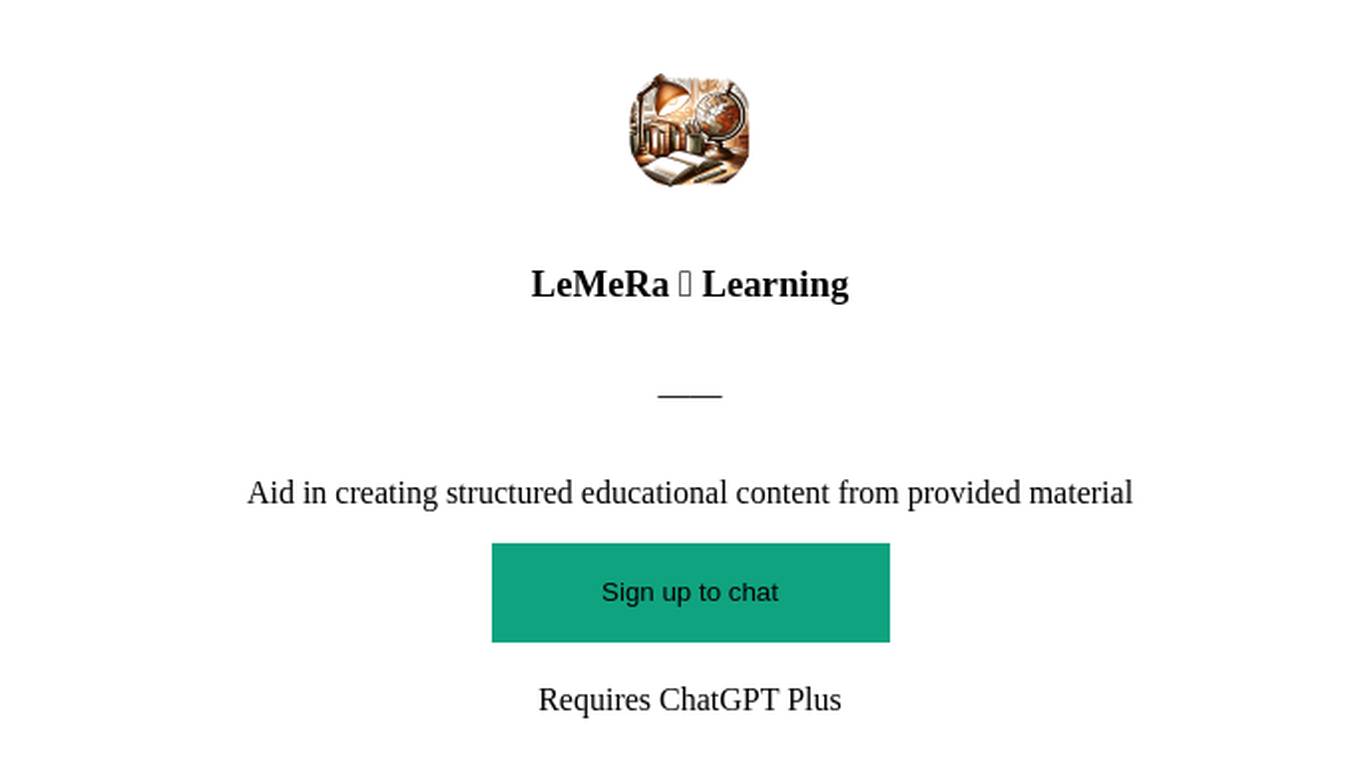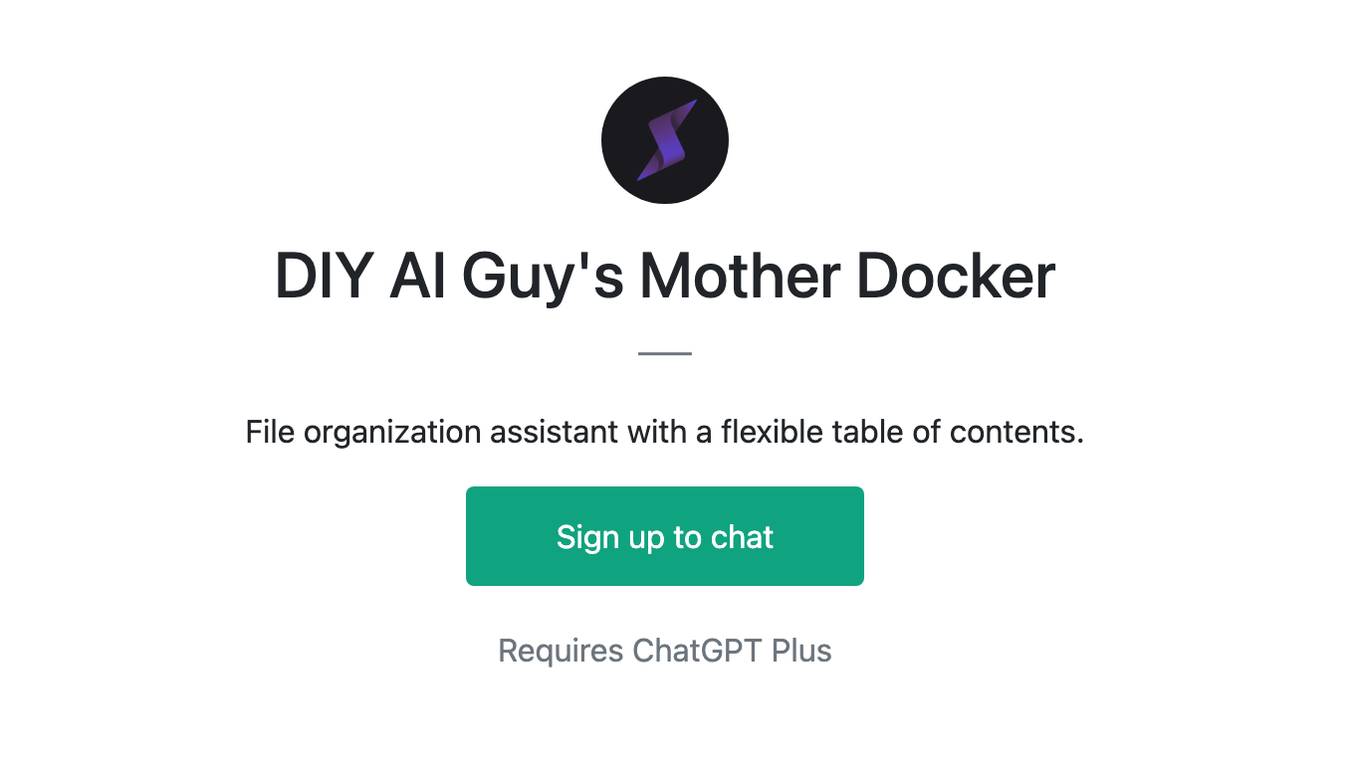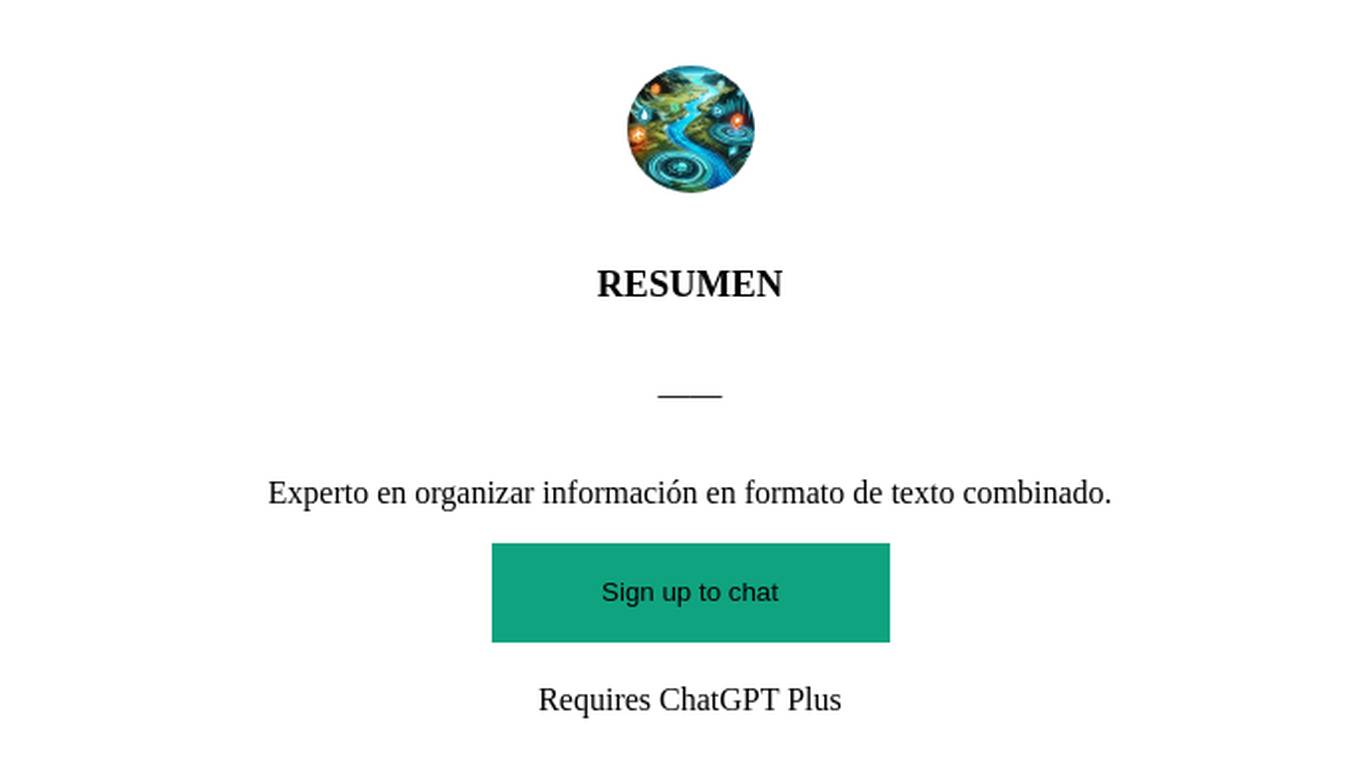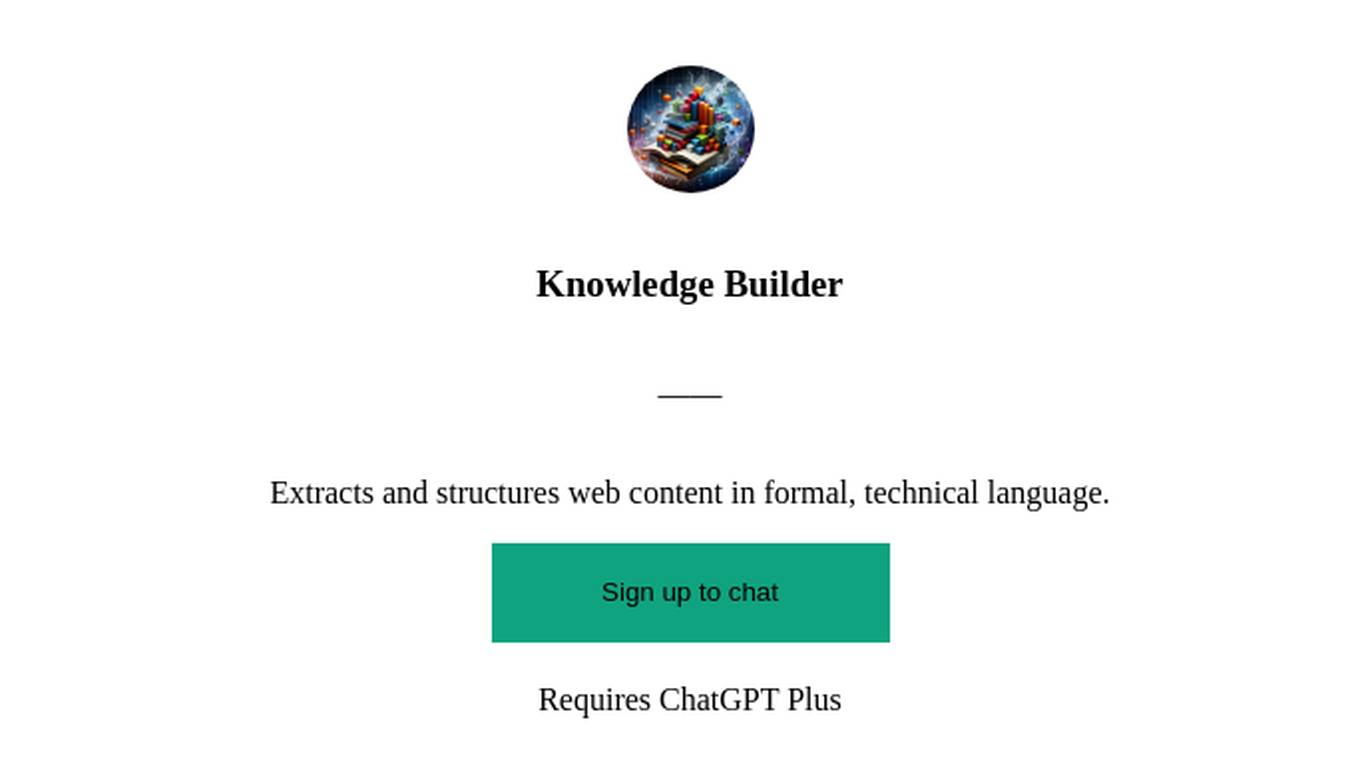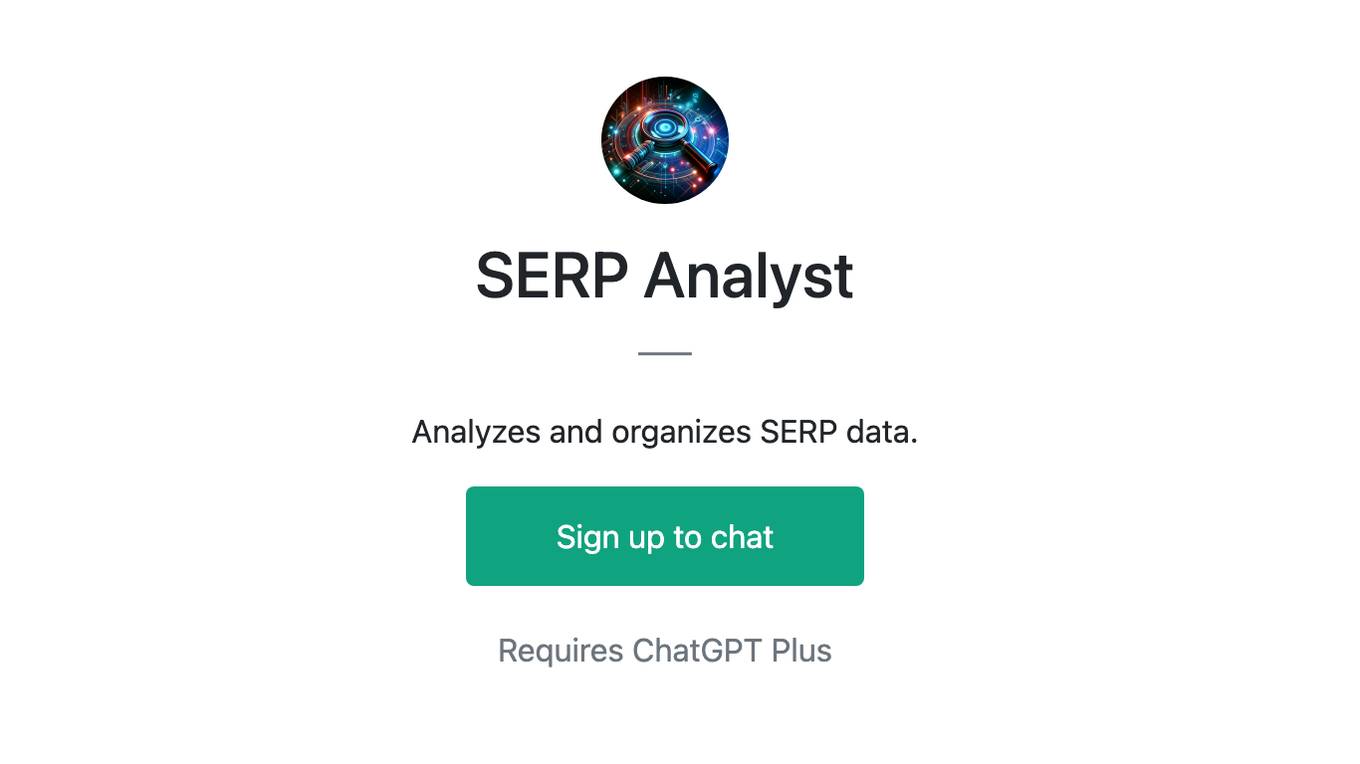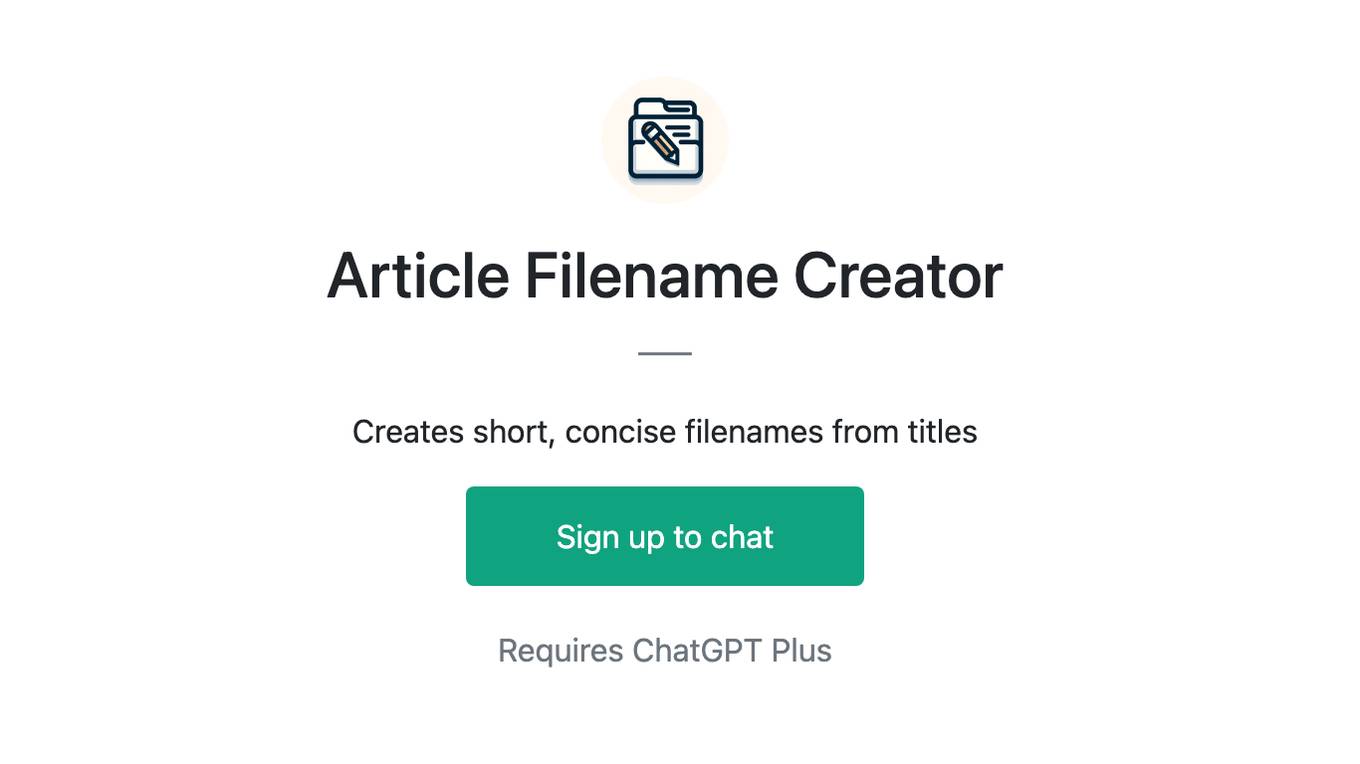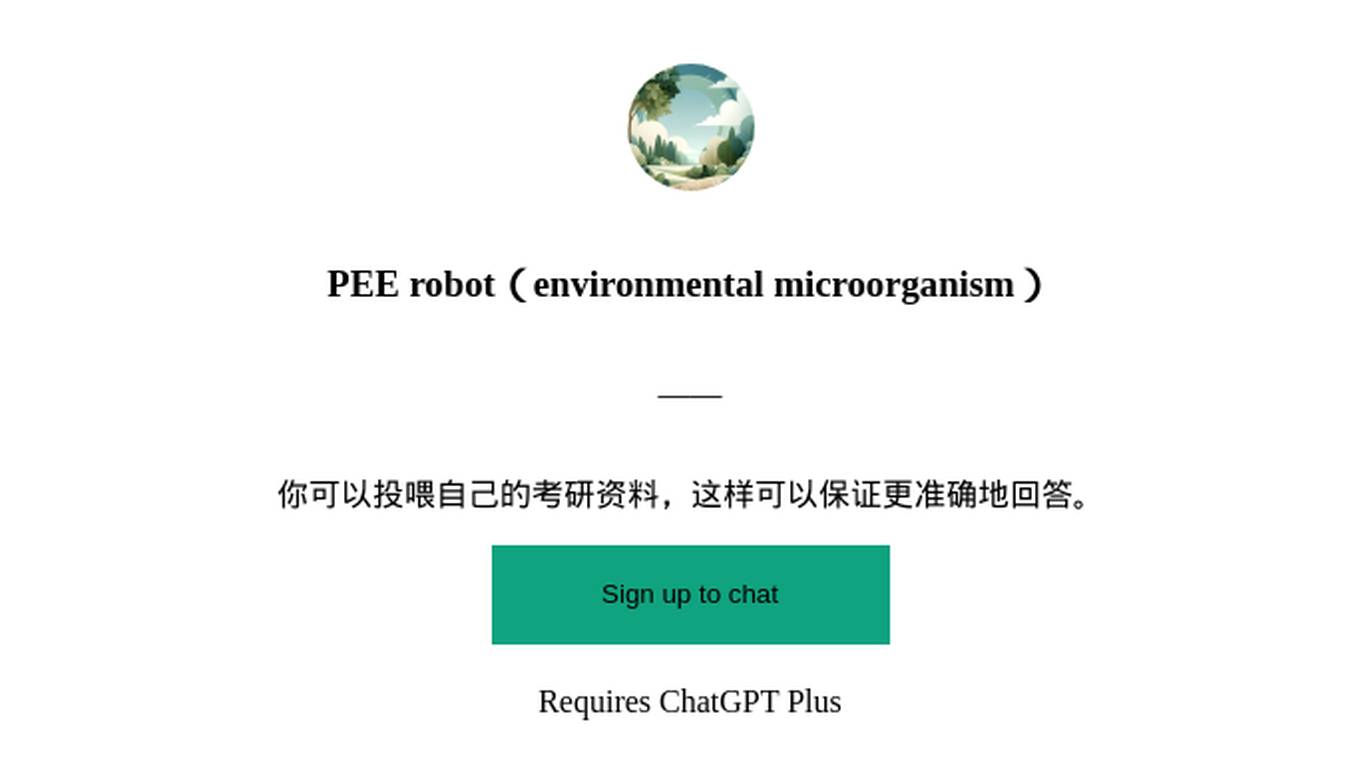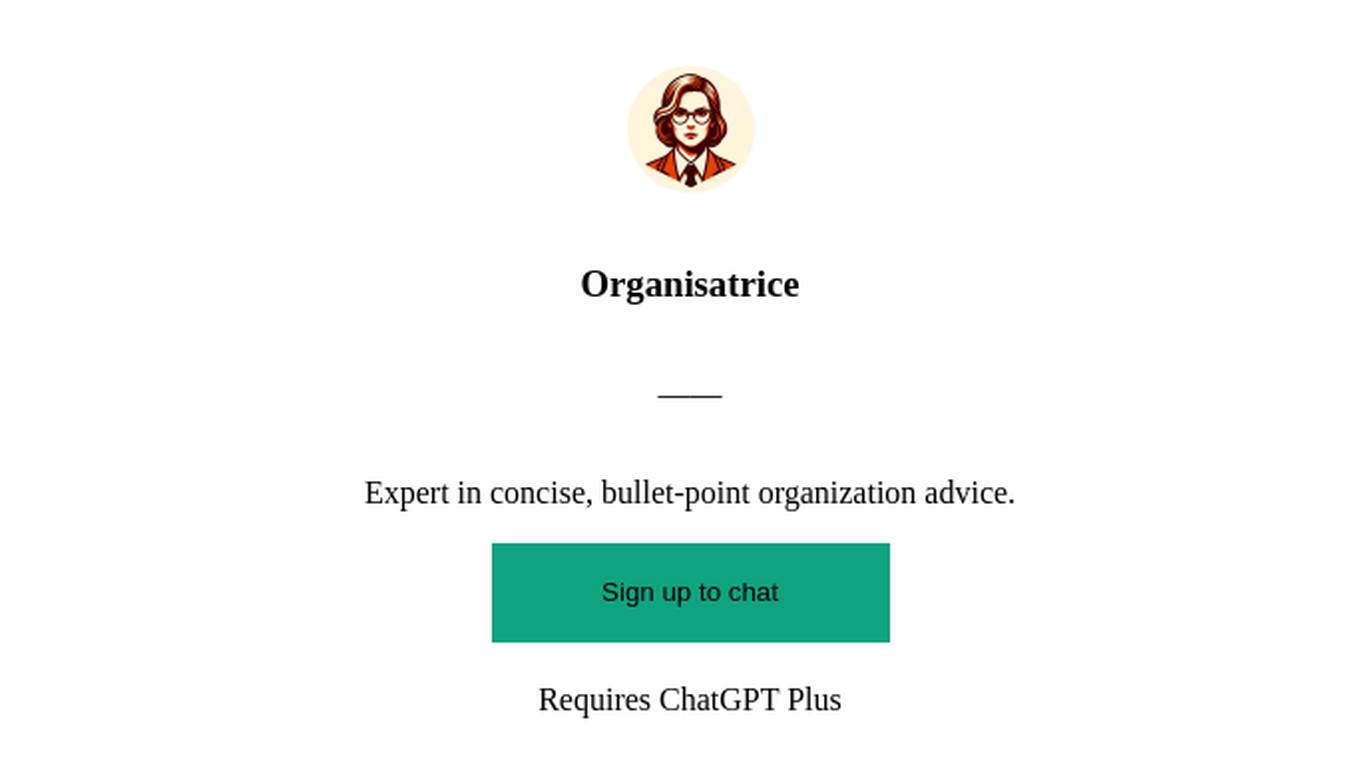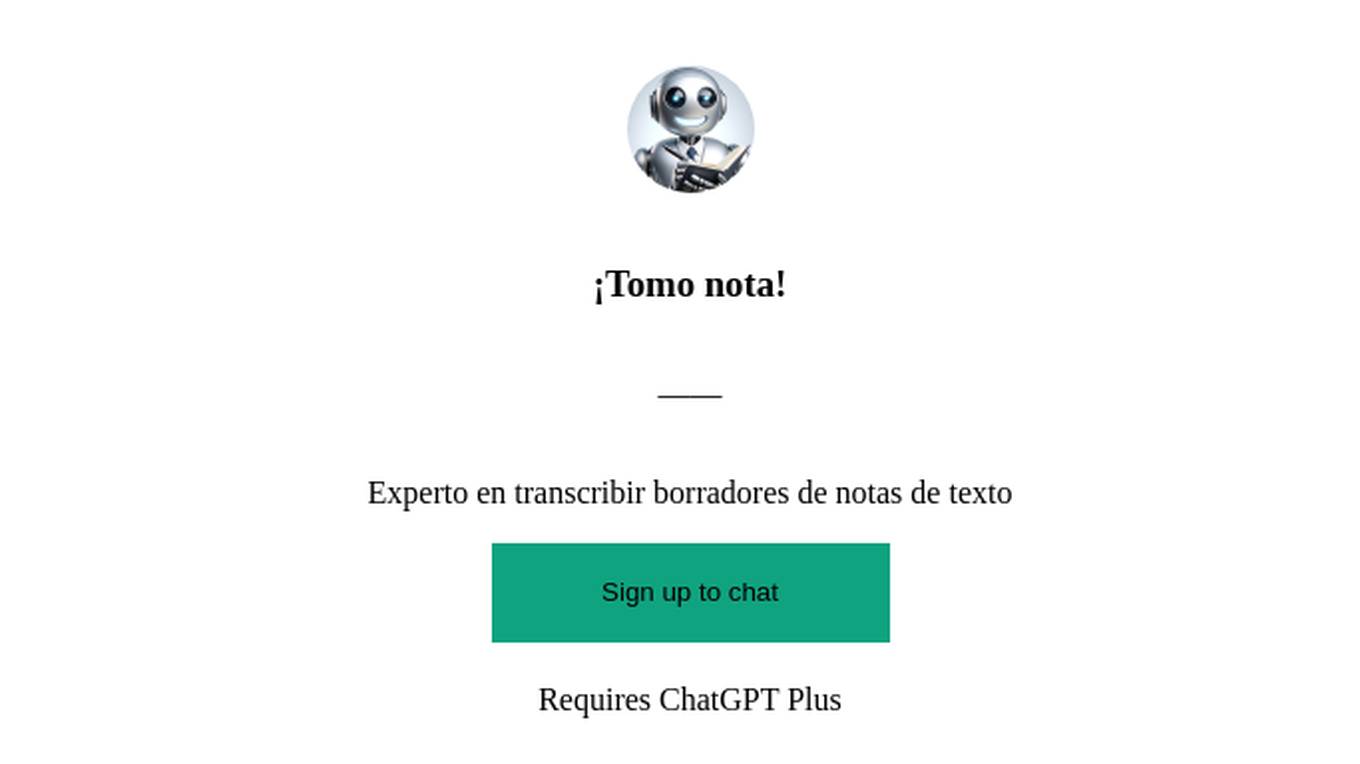Best AI tools for< Organize Content >
13 - AI tool Sites
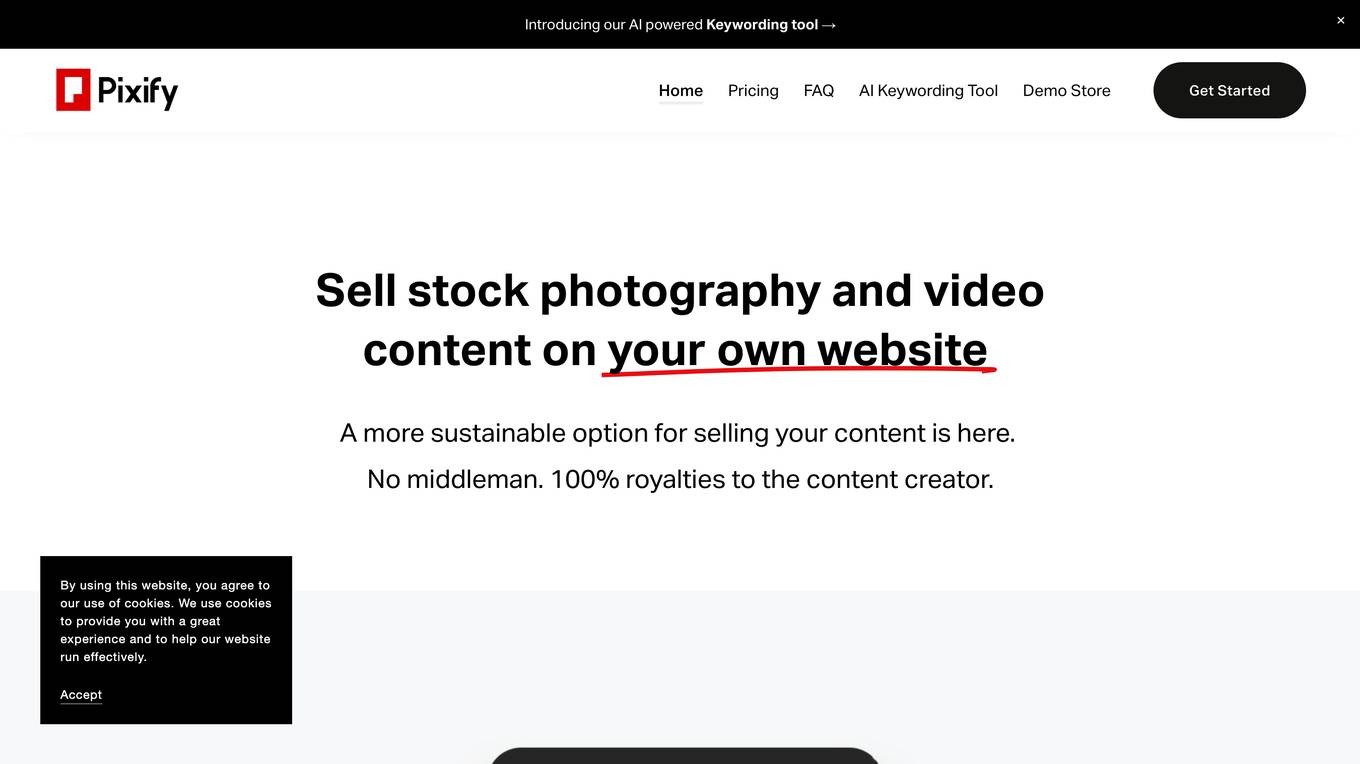
Pixify
Pixify is an AI-powered application that offers a suite of tools for efficiently keywording and selling content on Shopify. With Pixify Studio, users can leverage the power of AI to automate the process of describing and keywording their content. The Pixify Shopify App allows users to upload, manage, curate, and sell their content seamlessly. The application aims to help users streamline their content creation and selling processes by harnessing the capabilities of artificial intelligence.
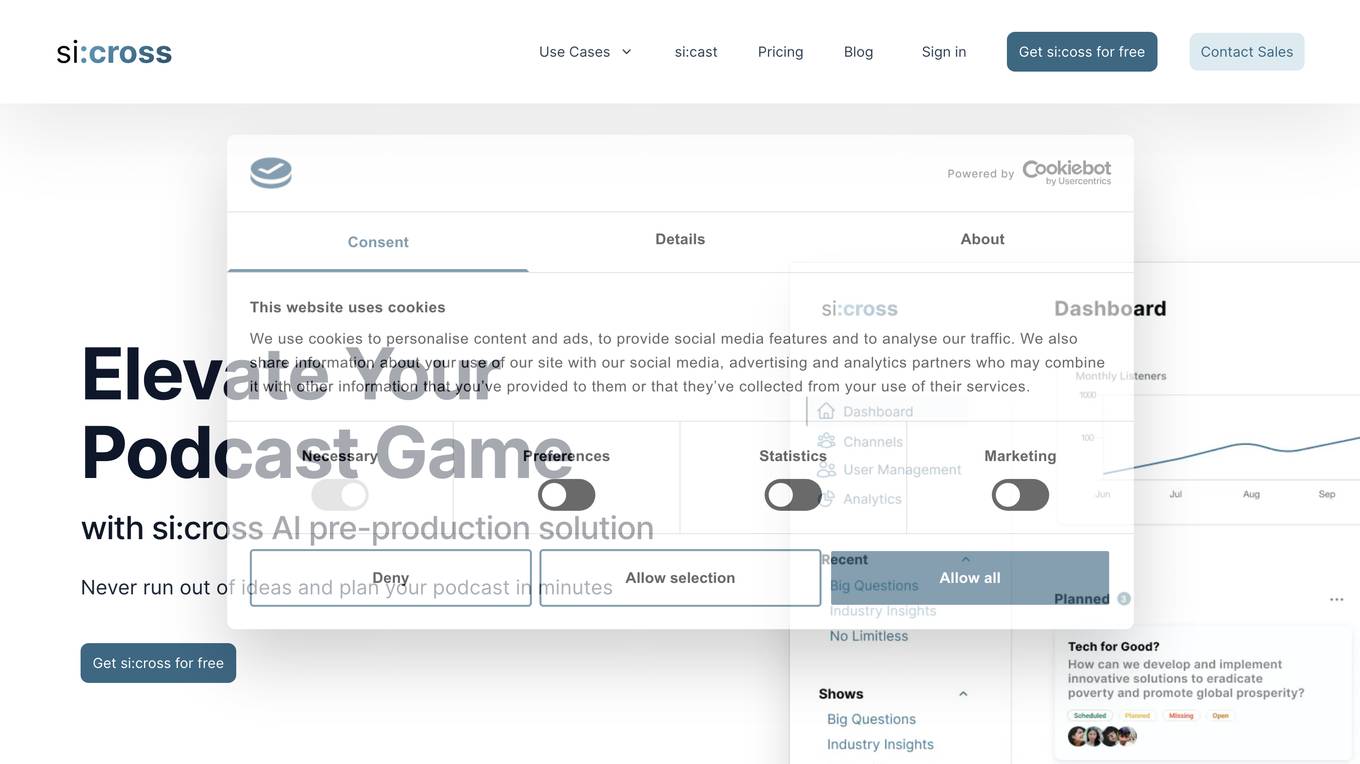
si:cross
si:cross is an AI-powered podcast pre-production solution that helps users plan, produce, and share engaging podcast content effortlessly. It offers features such as simplifying research for creative ideas, attracting more listeners with engaging episodes, defining podcast vision, starting with AI-driven episode concepts, organizing thoughts, managing episodes end-to-end, monitoring planning, and engaging the audience. si:cross aims to streamline podcast workflows and optimize content creation with the help of artificial intelligence.
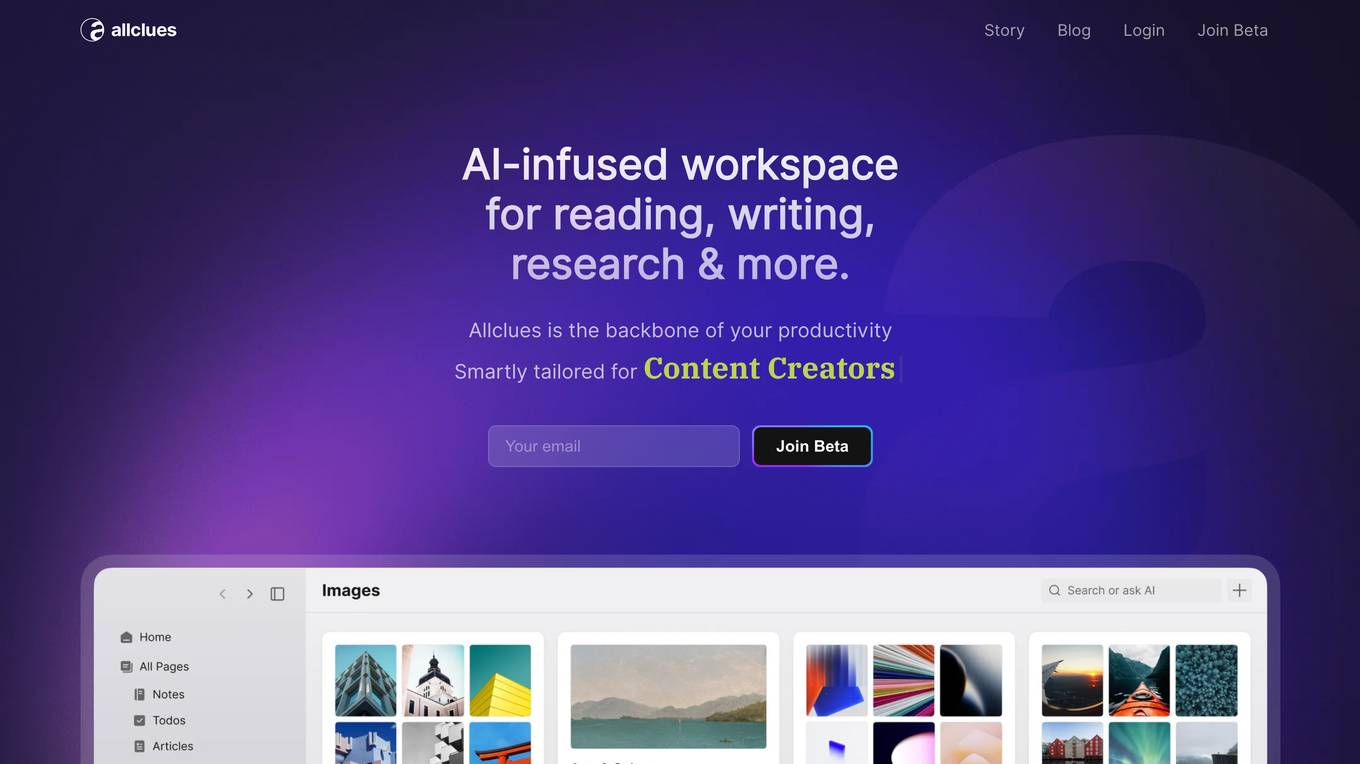
Allclues
Allclues is an AI-infused workspace designed for reading, writing, research, and productivity enhancement. It offers features like Clues AI for intuitive assistance, ClueReport for summarizing readings, and OmniMap for visualizing connections. The application aims to help users organize information, generate insights, and enhance knowledge exploration effortlessly.
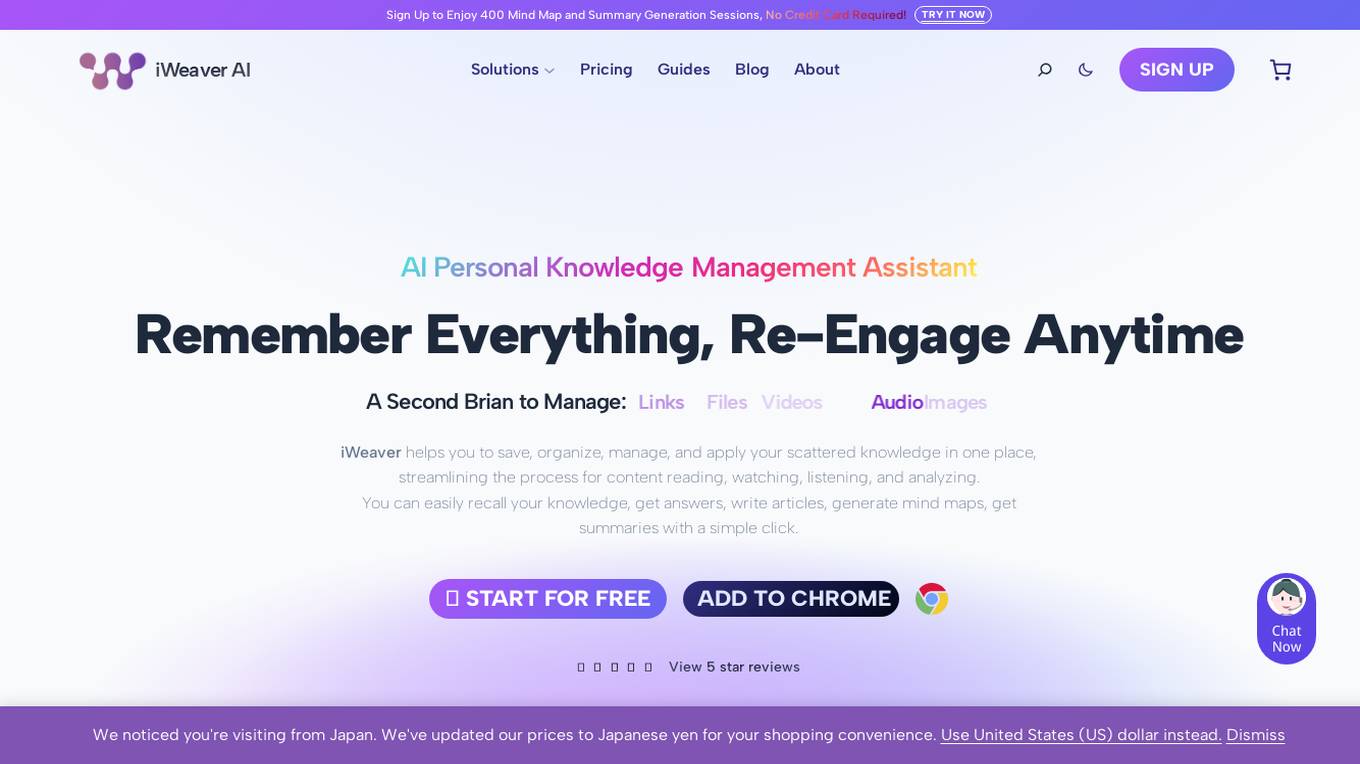
iWeaver
iWeaver is an AI-powered knowledge management tool that offers features such as mind mapping, summarization, content generation, and personalized knowledge organization. It helps users save, organize, and apply scattered knowledge in one place, streamlining the process for content reading, watching, listening, and analyzing. iWeaver leverages AI to provide comprehensive research, insights, and summaries tailored to specific needs, making it a valuable tool for students, researchers, writers, and professionals.

Bash
Bash is an AI-powered platform that helps users turn information into actionable insights and documents. It offers a wide range of tools for product management, marketing, content creation, research, and more. With features like AI content generation, meeting minute writing, research paper summarization, and content distribution planning, Bash aims to streamline work processes and boost productivity. Users can organize information, get insights, and write faster using the platform's guided workflows and templates. Bash is designed to assist individuals and teams in various industries by providing AI-powered solutions for knowledge management and content creation.
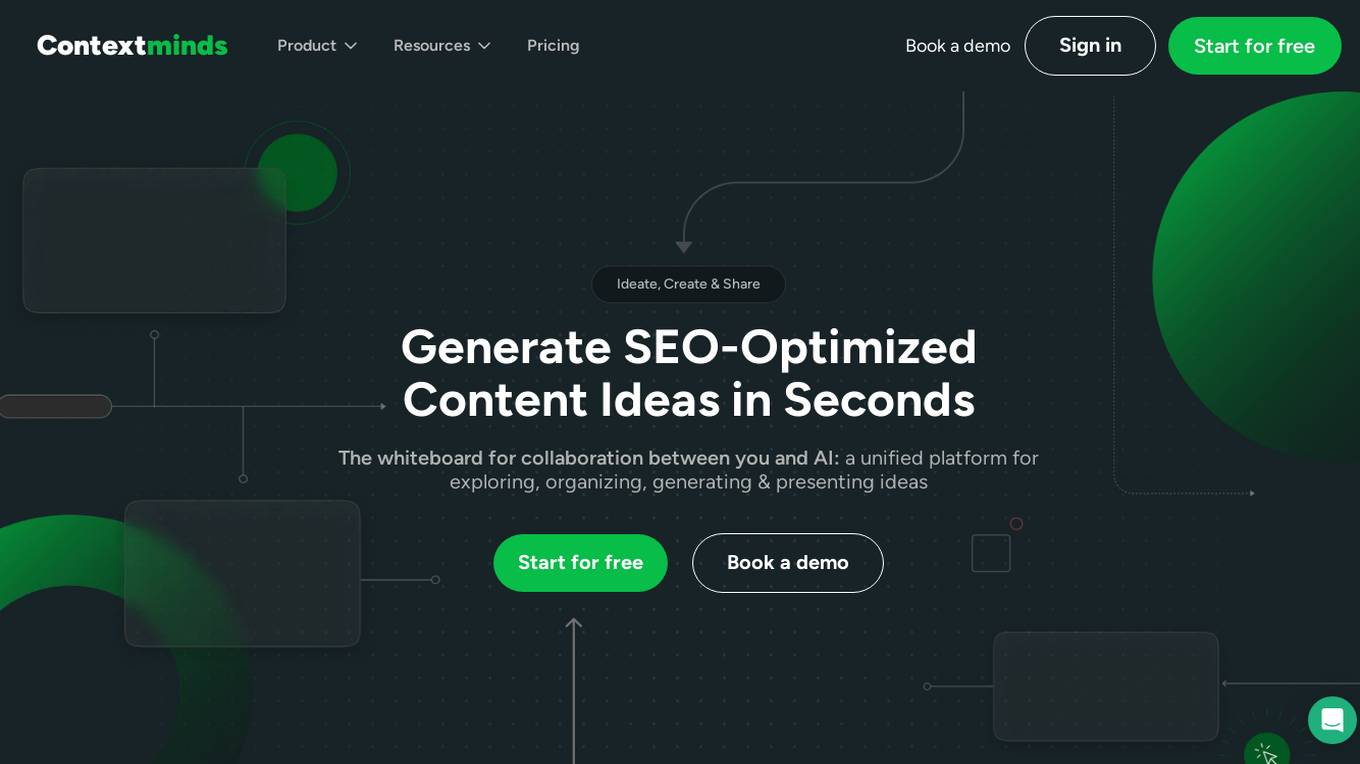
ContextMinds
ContextMinds is an AI-powered content ideation and generation tool that helps users streamline their content creation process. It offers features such as content clustering, AI whiteboard for content structure, content research, and more. With ContextMinds, users can easily organize their ideas, generate SEO-optimized content, and leverage AI assistance to enhance their content strategy. The platform simplifies the entire process from ideation to creation, making it effortless for individuals and teams to structure their content ideas effectively.
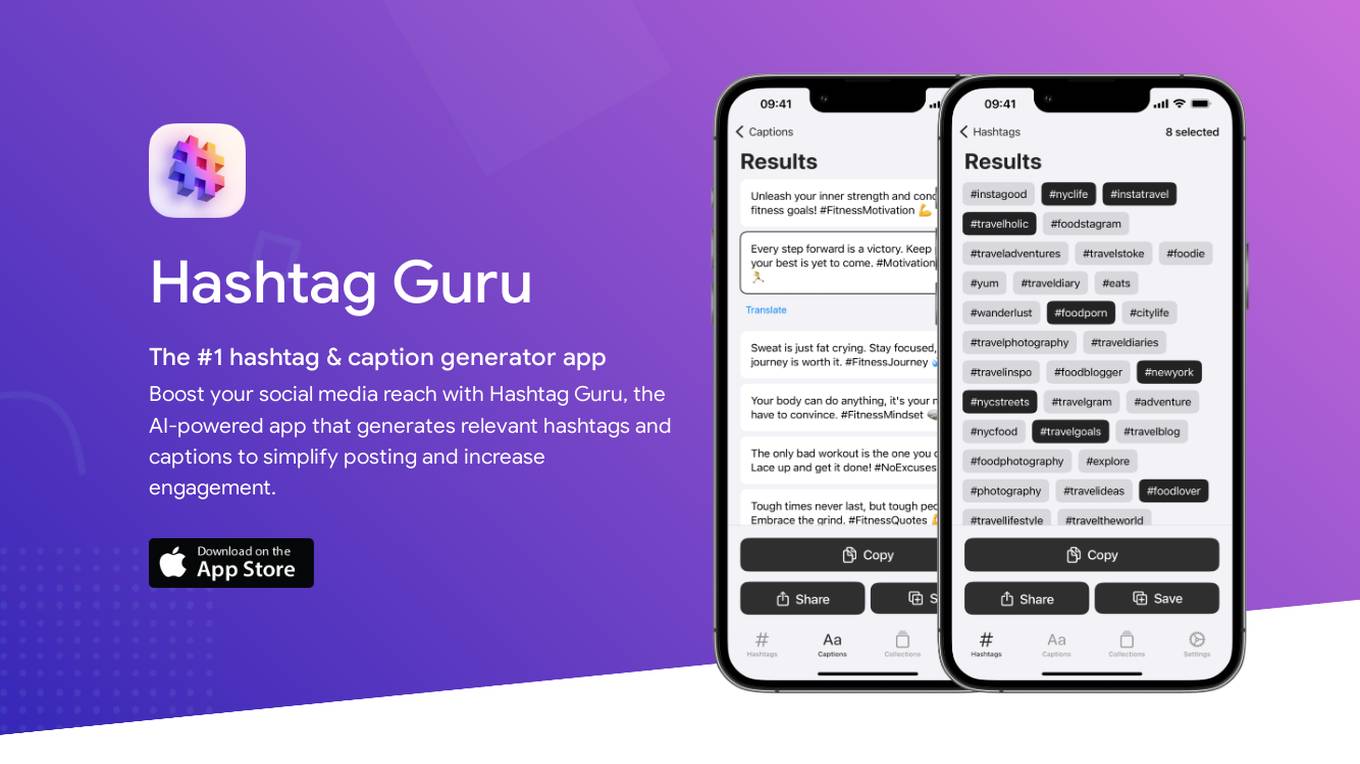
Hashtag Guru
Hashtag Guru is an AI-powered application designed to help users generate relevant hashtags and captions for their social media posts. By utilizing artificial intelligence, the app simplifies the process of creating engaging content, increasing user engagement and reach across platforms like Instagram and TikTok. Users can personalize hashtags based on their profiles, generate captions from images, translate captions into multiple languages, and save their favorite hashtags and captions for future use. With features like optimized hashtag generation, caption customization, and easy sharing capabilities, Hashtag Guru aims to streamline social media marketing strategies and enhance user visibility.
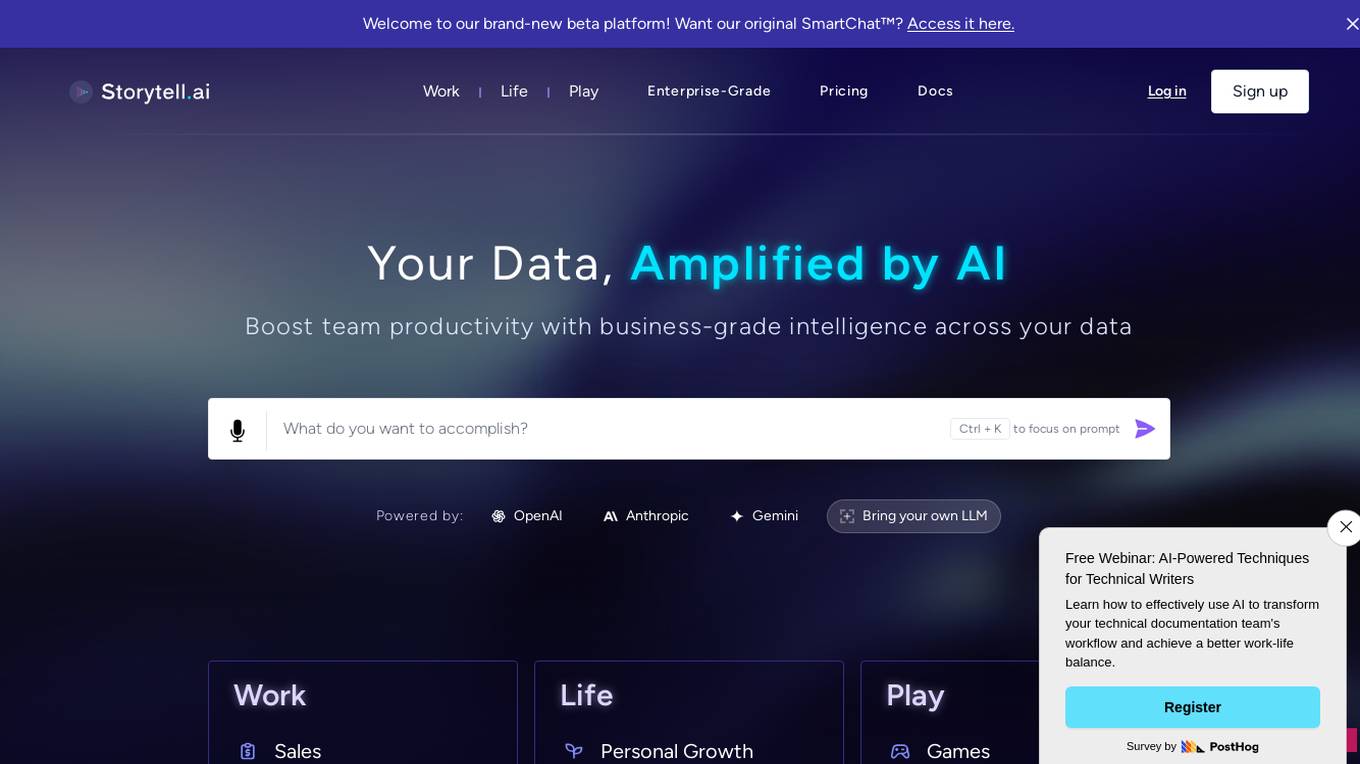
Storytell.ai
Storytell.ai is an AI-powered platform designed to amplify team productivity by providing business-grade intelligence across data. It offers features such as SmartChatâ¢, tagging, and content structuring to enhance work, life, and play experiences. Trusted by users across various industries, Storytell.ai leverages AI technology to streamline tasks and decision-making processes, ultimately leading to increased efficiency and profitability.
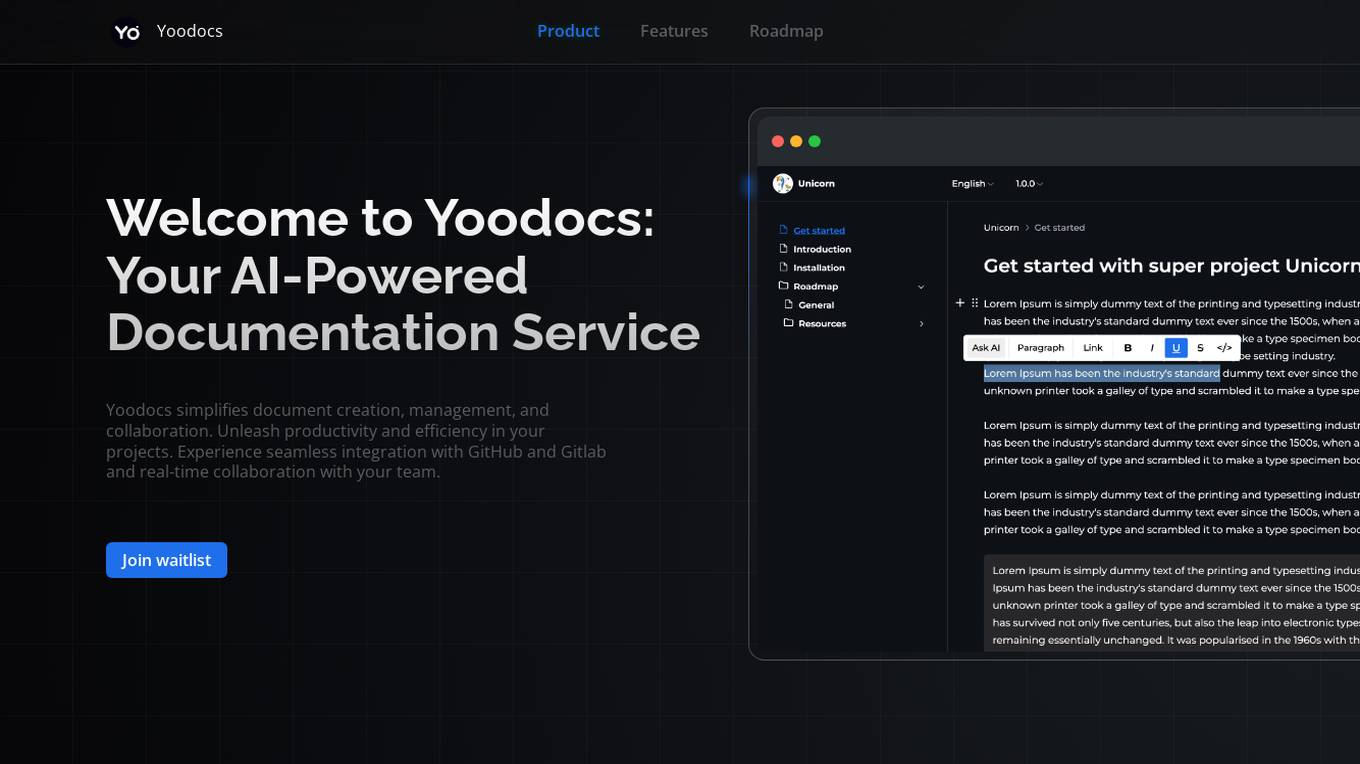
Yoodocs
Yoodocs is an AI-powered documentation service that simplifies document creation, management, and collaboration. It offers features such as document hierarchy organization, open-source documentation creation, export to various formats, workspace diversity, language management, version control, seamless migration, AI-powered editor assistant, comprehensive search, automated sync with GitLab and GitHub, self-hosted solution, collaborative development, customization styles and themes, and integrations. Yoodocs aims to enhance productivity and efficiency in projects by providing a comprehensive solution for documentation needs.
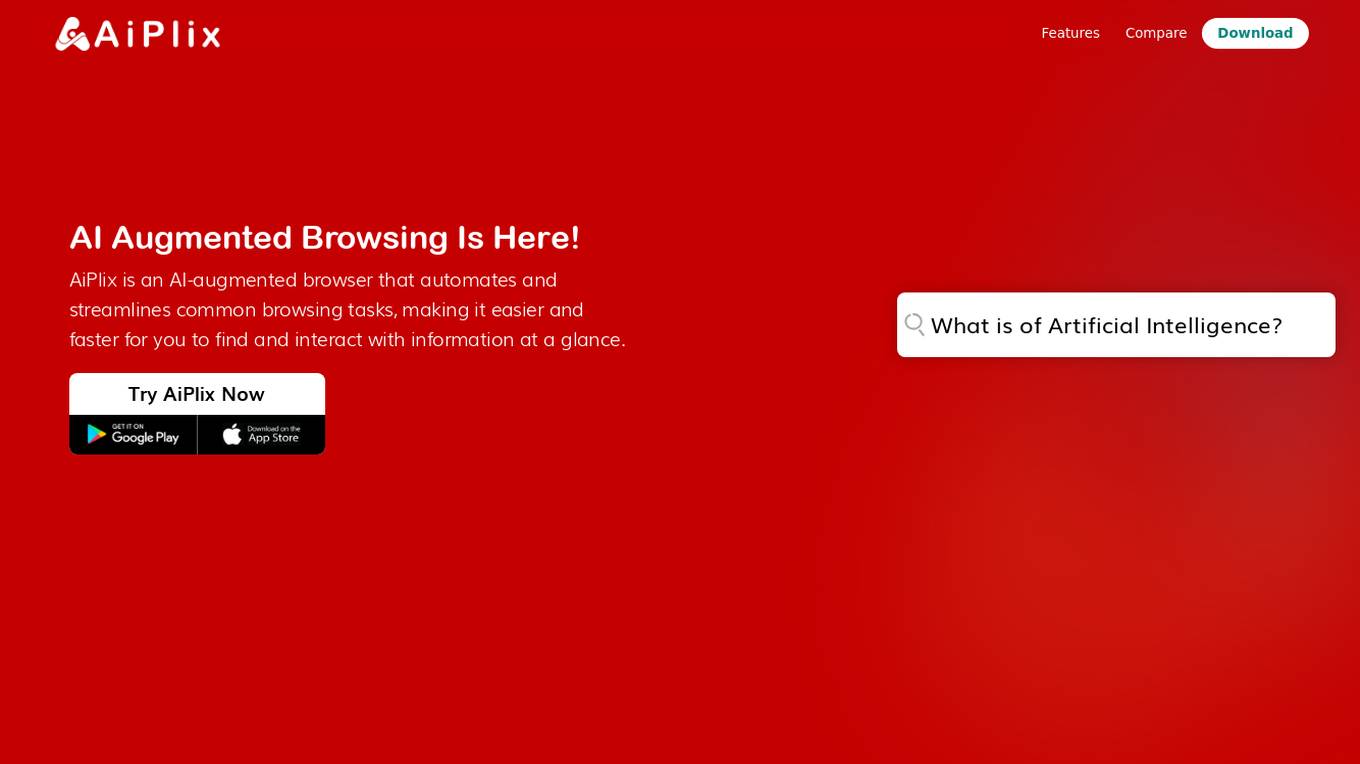
AiPlix
AiPlix is an AI-augmented browser that automates and streamlines common browsing tasks, making it easier and faster for users to find and interact with information at a glance. It offers features such as automated browsing history reinvention, predictive browsing, dynamic previews, multi-tasking capabilities, and organized content management. AiPlix also provides advantages like enhanced browsing efficiency, personalized assistance, context-aware responses, privacy control, and ephemeral browsing. However, it has disadvantages such as limited support for certain features, browser size, and rendering engine variations.
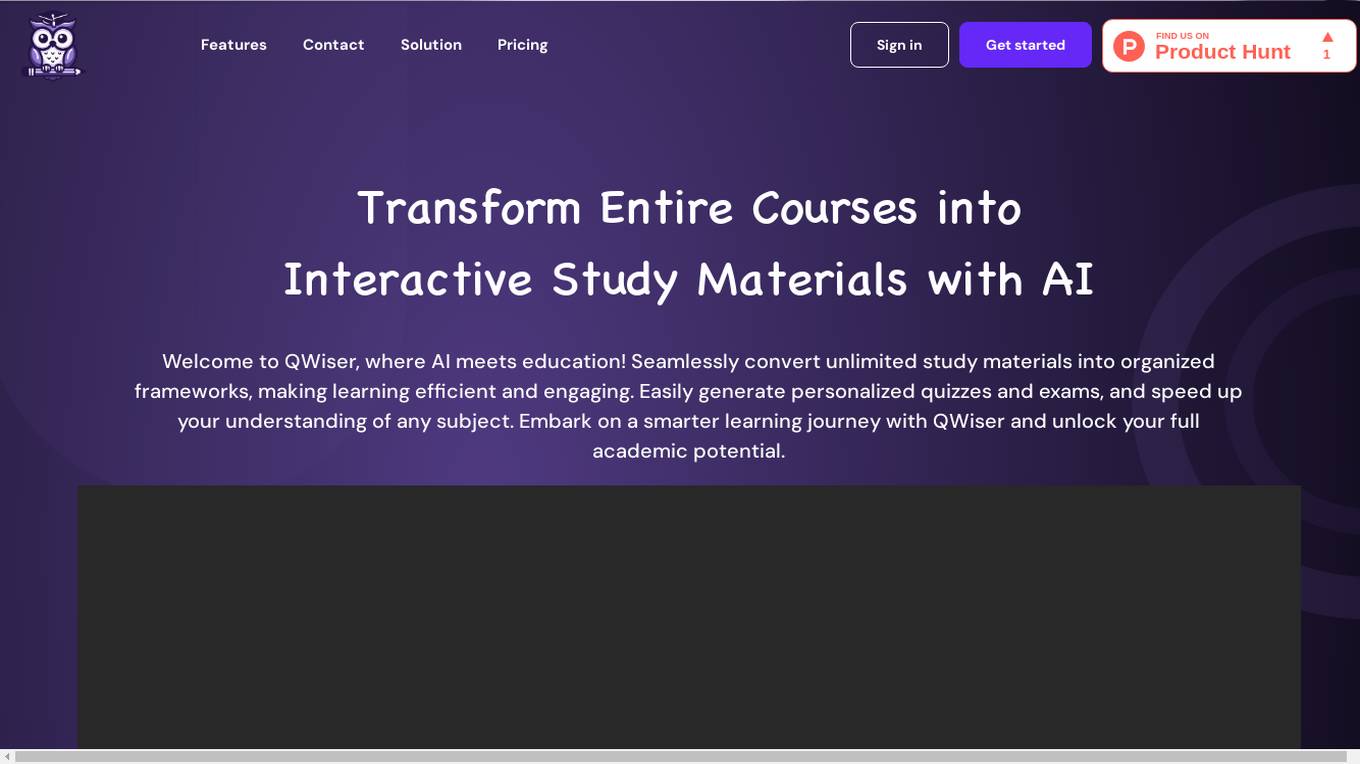
QWiser
QWiser is an AI-powered learning platform that transforms entire courses into interactive study materials. It uses AI to instantly convert complex information into easy-to-understand visuals, organizes study materials into topics and subtopics, generates personalized quizzes and exams, and enhances learning efficiency. QWiser aims to revolutionize the education sector by providing a smarter learning journey for students and educators worldwide.

Alt Cortex
Alt Cortex is an AI-powered news aggregation tool designed to help users curate, organize, summarize, and share content effortlessly. It leverages advanced technologies like vector search and OpenAI to provide users with relevant and concise insights. With features such as source control, automated updates, semantic categorization, intelligent summaries, and various sharing options, Alt Cortex aims to enhance user engagement and content clarity. The platform caters to a wide range of industries and purposes, offering solutions for content creators, educators, e-commerce sites, news outlets, corporate knowledge hubs, event organizers, nonprofits, health coaches, travel bloggers, real estate platforms, financial advisors, food bloggers, and more.
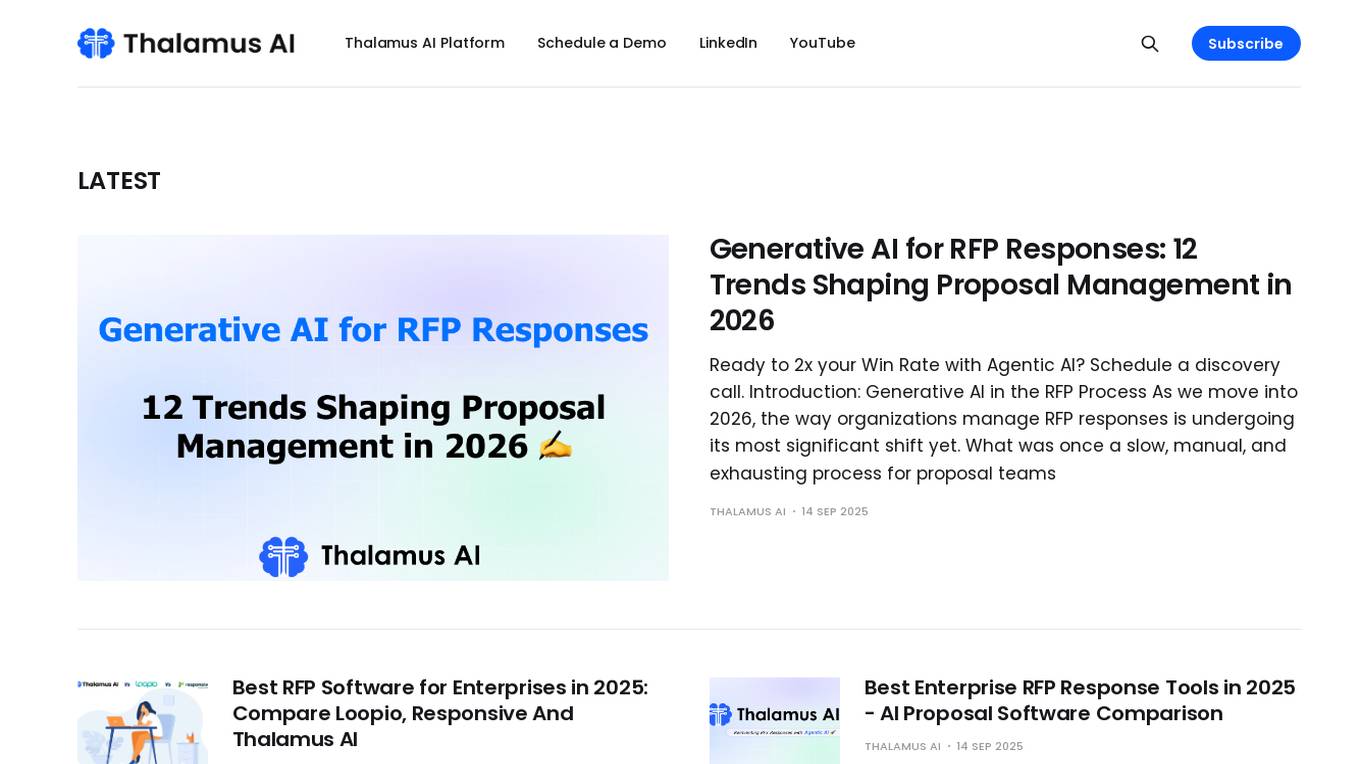
Thalamus AI
Thalamus AI is a cutting-edge AI application designed to revolutionize the way organizations manage RFP (Request for Proposal) responses. By leveraging generative AI technology, Thalamus AI streamlines the RFP process, making it faster, more efficient, and less manual for proposal teams. The platform offers advanced features such as prompt-based multi-agent platforms, AI agents for automation, and content library organization. Thalamus AI aims to enhance proposal management in enterprises by providing innovative solutions powered by artificial intelligence.
4 - Open Source AI Tools
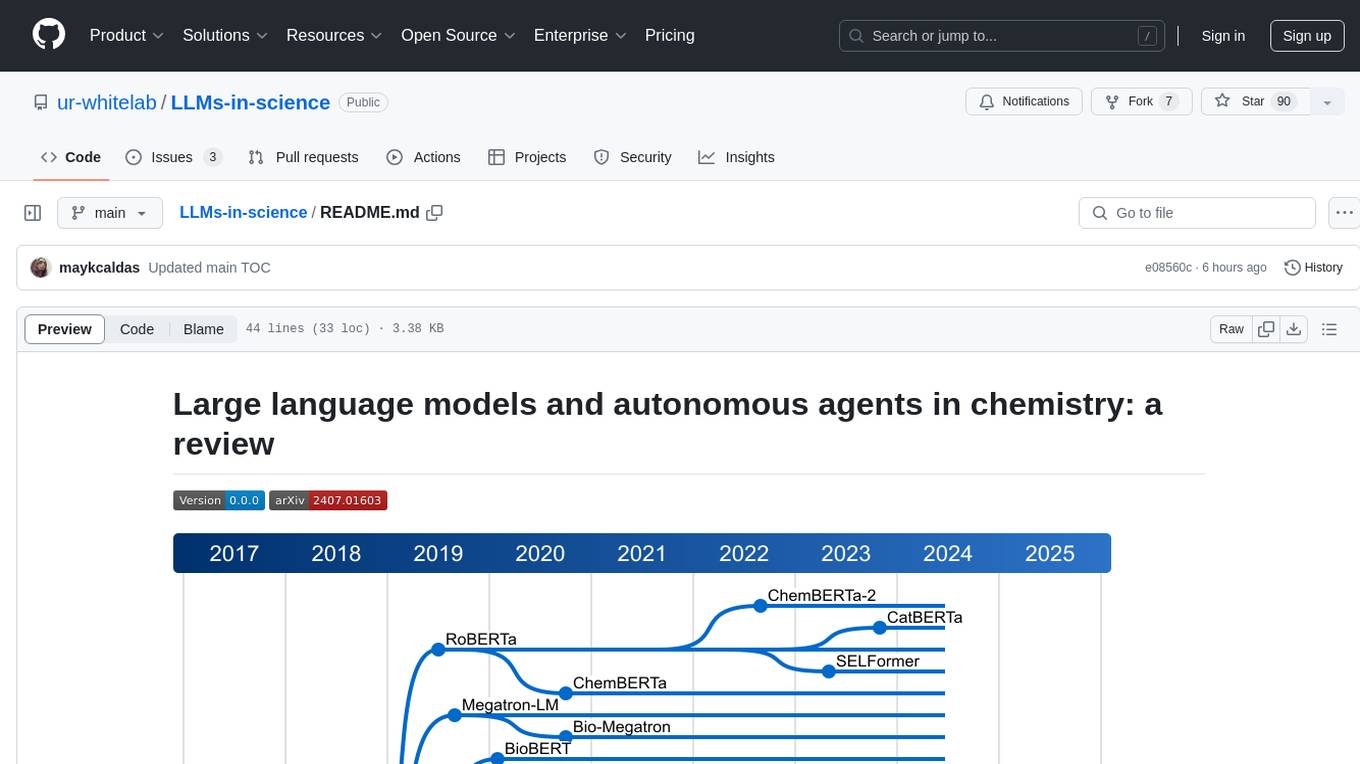
LLMs-in-science
The 'LLMs-in-science' repository is a collaborative environment for organizing papers related to large language models (LLMs) and autonomous agents in the field of chemistry. The goal is to discuss trend topics, challenges, and the potential for supporting scientific discovery in the context of artificial intelligence. The repository aims to maintain a systematic structure of the field and welcomes contributions from the community to keep the content up-to-date and relevant.
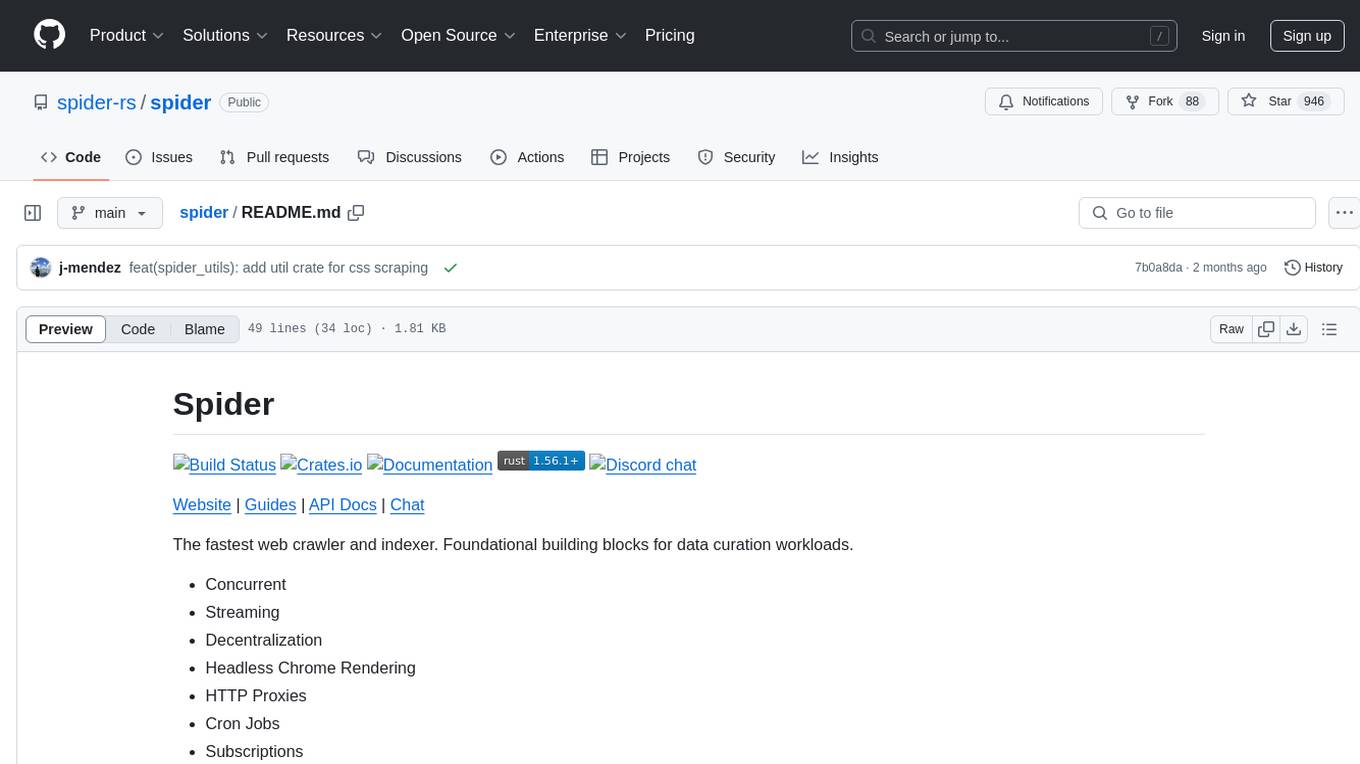
spider
Spider is a high-performance web crawler and indexer designed to handle data curation workloads efficiently. It offers features such as concurrency, streaming, decentralization, headless Chrome rendering, HTTP proxies, cron jobs, subscriptions, smart mode, blacklisting, whitelisting, budgeting depth, dynamic AI prompt scripting, CSS scraping, and more. Users can easily get started with the Spider Cloud hosted service or set up local installations with spider-cli. The tool supports integration with Node.js and Python for additional flexibility. With a focus on speed and scalability, Spider is ideal for extracting and organizing data from the web.
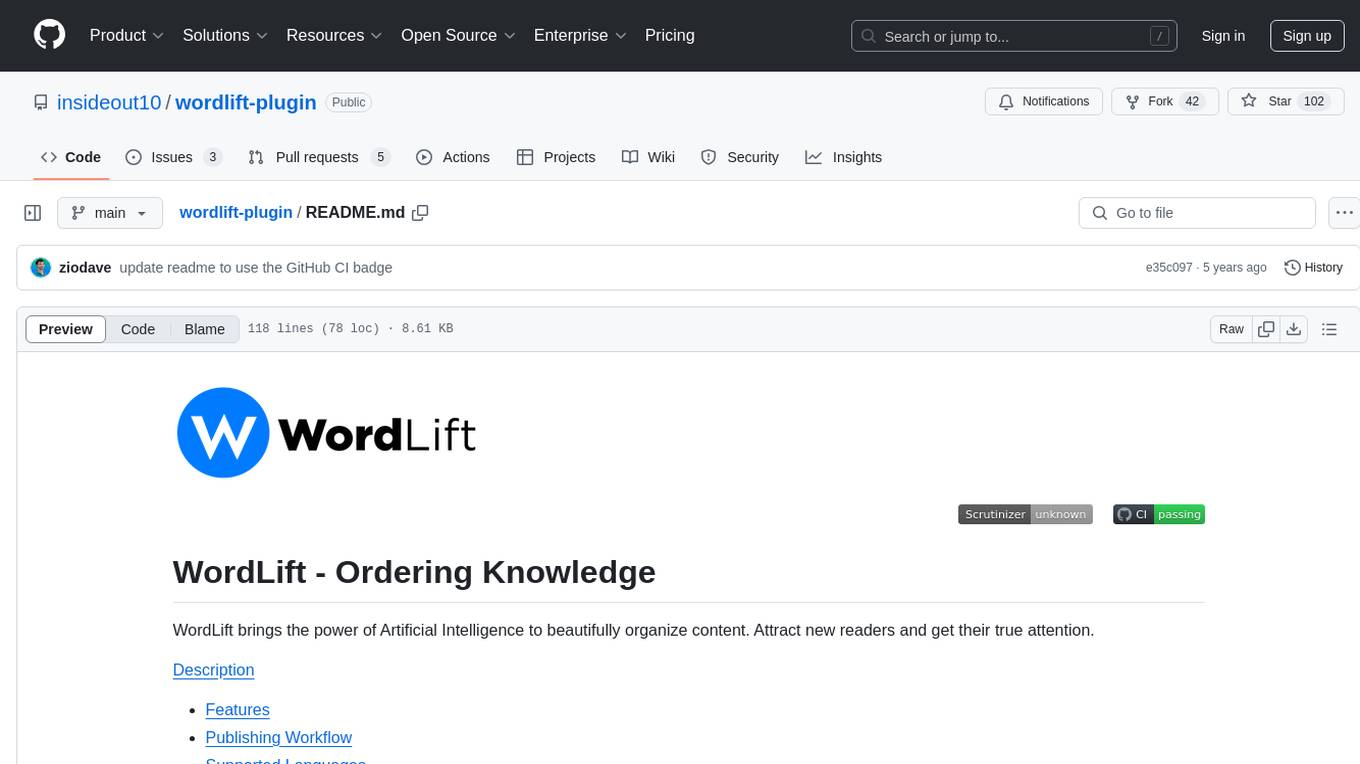
wordlift-plugin
WordLift is a plugin that helps online content creators organize posts and pages by adding facts, links, and media to build beautifully structured websites for both humans and search engines. It allows users to create, own, and publish their own knowledge graph, and publishes content as Linked Open Data following Tim Berners-Lee's Linked Data Principles. The plugin supports writers by providing trustworthy and contextual facts, enriching content with images, links, and interactive visualizations, keeping readers engaged with relevant content recommendations, and producing content compatible with schema.org markup for better indexing and display on search engines. It also offers features like creating a personal Wikipedia, publishing metadata to share and distribute content, and supporting content tagging for better SEO.
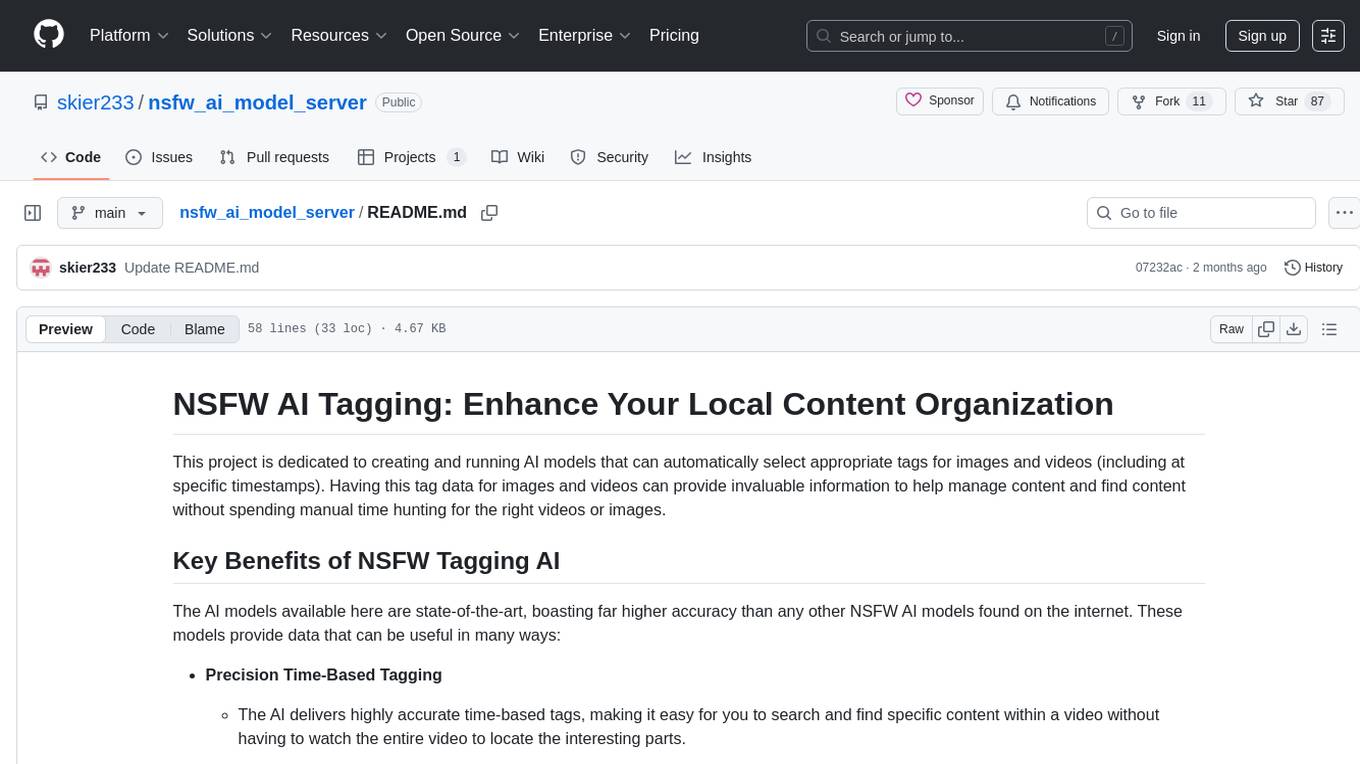
nsfw_ai_model_server
This project is dedicated to creating and running AI models that can automatically select appropriate tags for images and videos, providing invaluable information to help manage content and find content without manual effort. The AI models deliver highly accurate time-based tags, enhance searchability, improve content management, and offer future content recommendations. The project offers a free open source AI model supporting 10 tags and several paid Patreon models with 151 tags and additional variations for different tradeoffs between accuracy and speed. The project has limitations related to usage restrictions, hardware requirements, performance on CPU, complexity, and model access.
20 - OpenAI Gpts
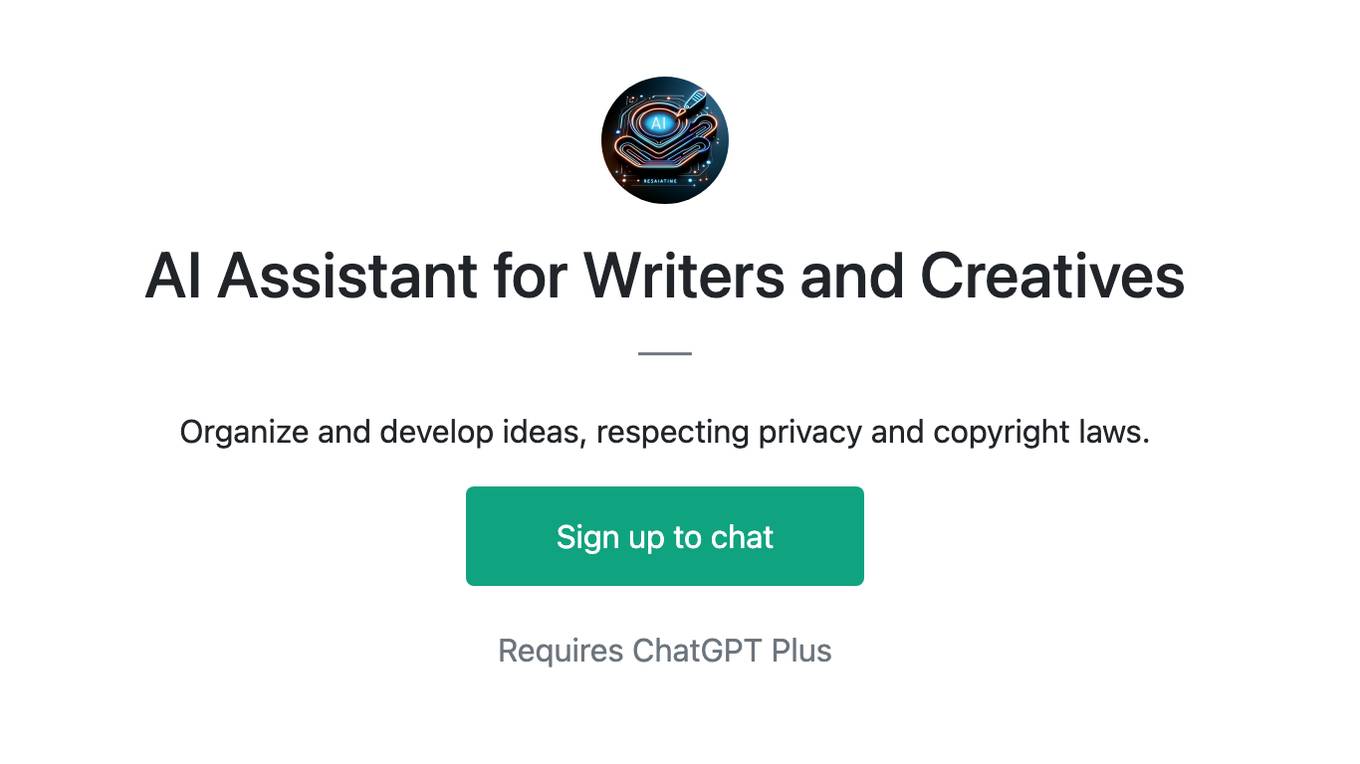
AI Assistant for Writers and Creatives
Organize and develop ideas, respecting privacy and copyright laws.
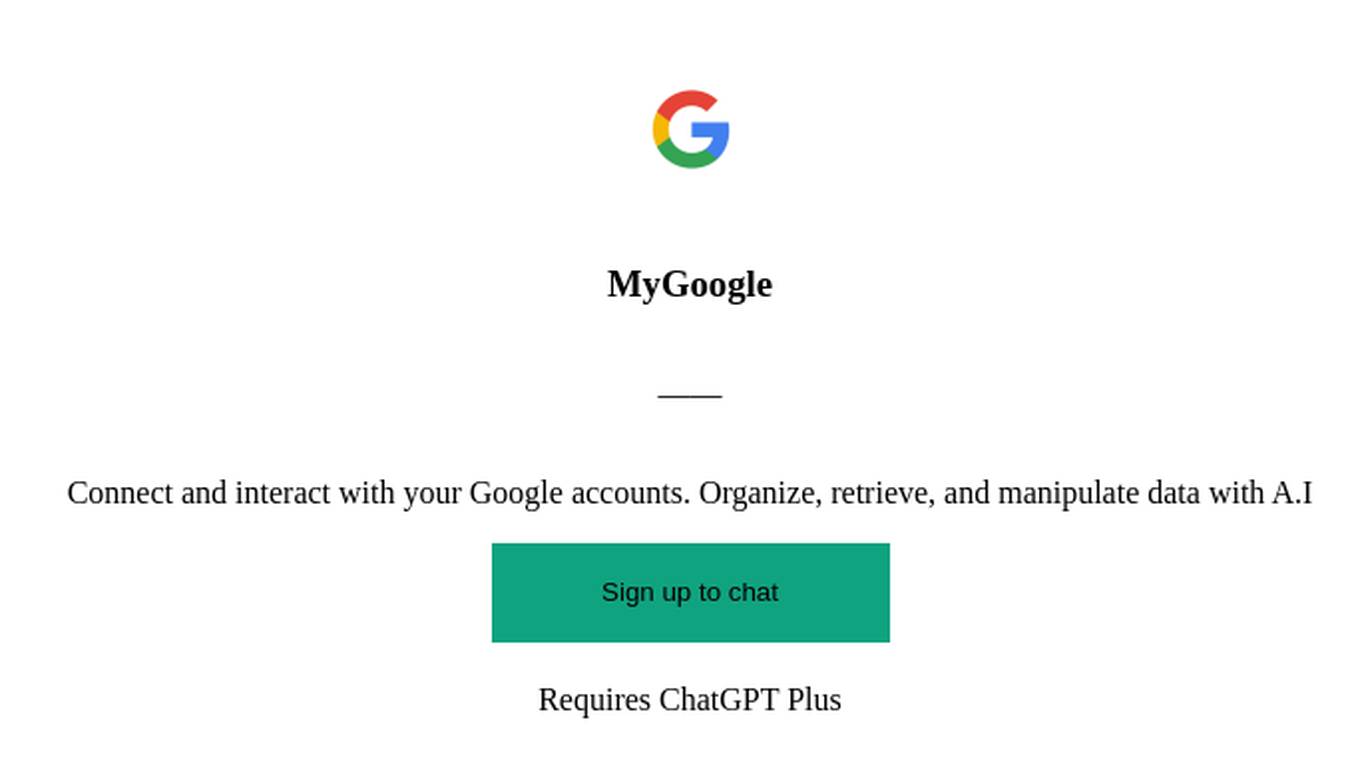
MyGoogle
Connect and interact with your Google accounts. Organize, retrieve, and manipulate data with A.I
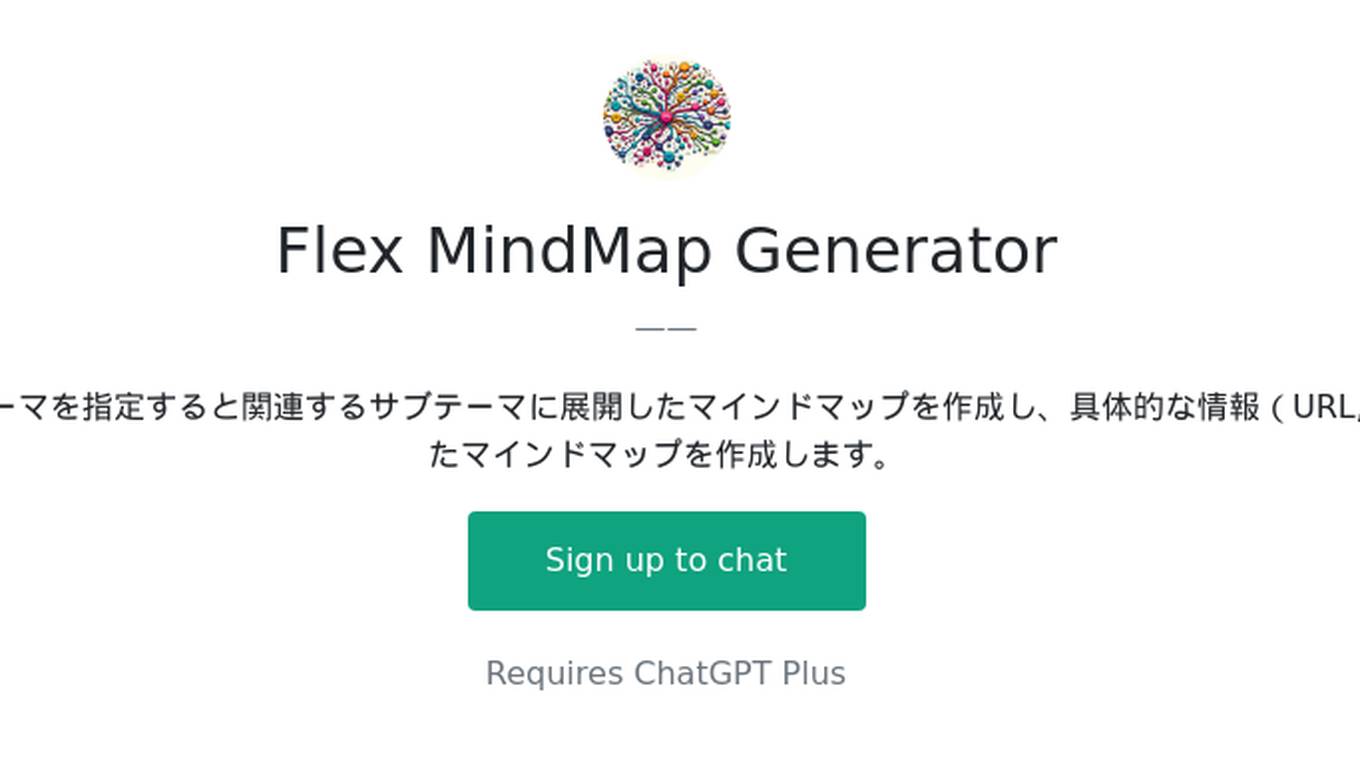
Flex MindMap Generator
なんでもマインドマップにするGPTです。テーマを指定すると関連するサブテーマに展開したマインドマップを作成し、具体的な情報(URL,txtなど)を提供すると、その情報に基づいたマインドマップを作成します。
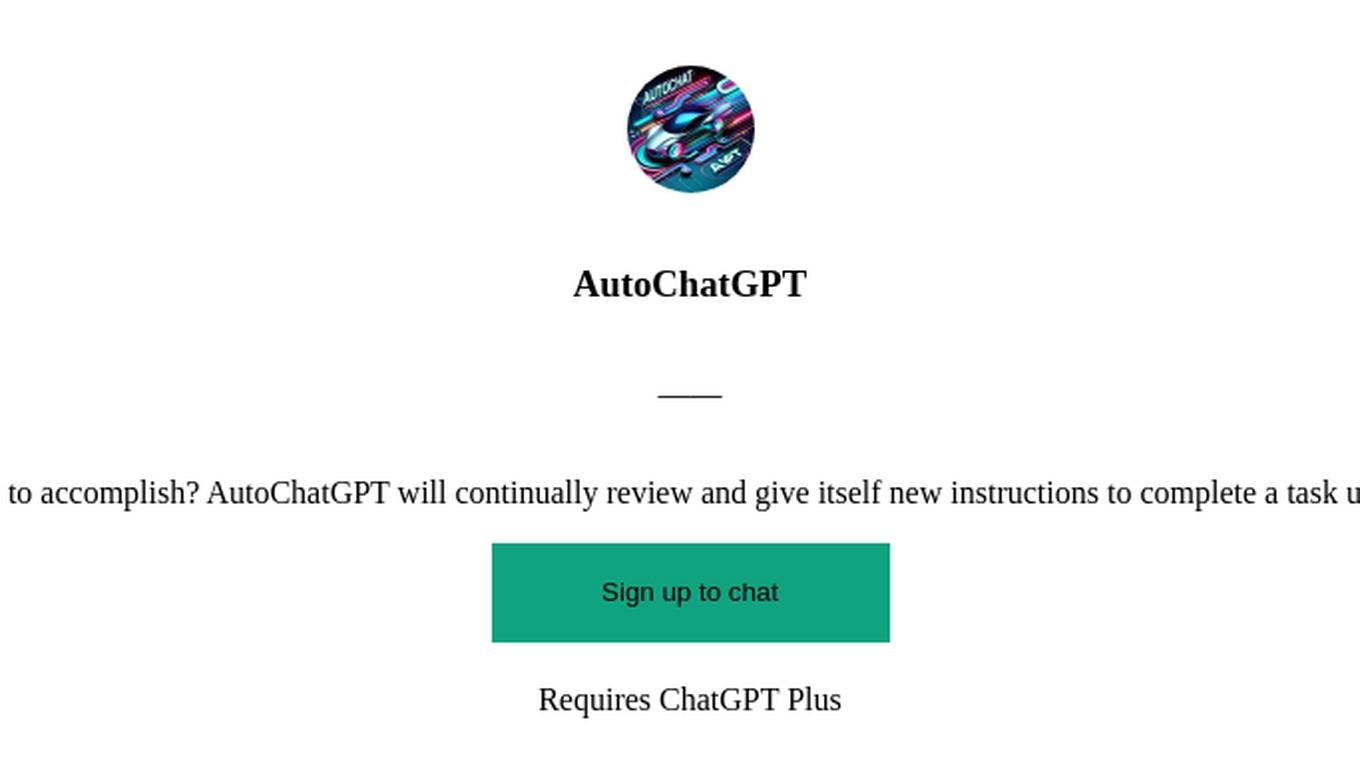
AutoChatGPT
Have a large task to accomplish? AutoChatGPT will continually review and give itself new instructions to complete a task using expert agents.
